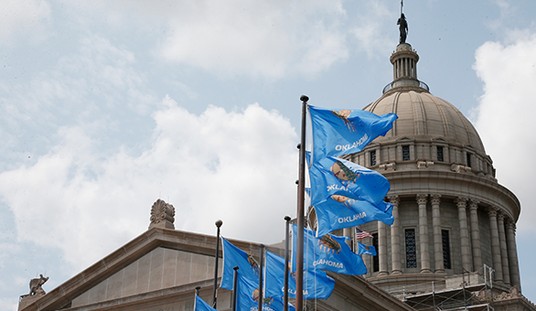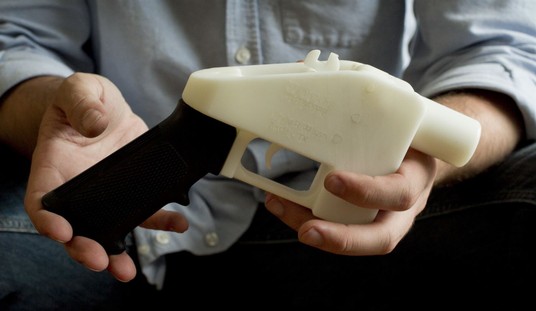New York’s gun licensing laws will remain just as onerous and capricious as ever, now that the Second Circuit Court of Appeals has rejected a lawsuit filed by the Libertarian Party of New York along with several individuals that sought to have the state’s licensing statutes tossed out as an infringement on the right to keep and bear arms.
The legal challenge faced an uphill climb from the get-go, thanks to the federal district court that first heard the case ruling that the Libertarian Party did not have standing to pursue its legal challenge. The Second Circuit on Tuesday agreed with the lower court, finding that the political party lacked standing because it had not applied for a pistol permit in the state of New York. As for the individuals who had challenged the law, the appellate court determined that none of them had standing to challenge the state statutes either, though the reasons offered by the court border on the Kafka-esque.
According to the Second Circuit, some of the plaintiffs lacked standing to challenge the licensing law because they hadn’t applied for a pistol license. Two plaintiffs who did apply for and receive a pistol license also lack standing to sue, according to the court, because their concern that their licenses will be revoked is “speculative.”
Based on the Second Circuit’s reasoning, the only potential plaintiffs that would have standing to sue over the state’s gun licensing laws would be individuals who applied for a pistol permit but were denied.
The court noted that, in order to have standing to sue in federal court, a plaintiff must show (1) injury-in-fact, which is a “concrete and particularized” harm to a “legally protected interest”; (2) causation in the form of a “fairly traceable” connection between the asserted injury-in-fact and the alleged actions of the defendant; and (3) redressability, or a non-speculative likelihood that the injury can be remedied by the requested relief.
Further, each plaintiff must establish standing with respect to each claim he or she asserts, and standing must be maintained throughout the proceeding. A federal court loses jurisdiction to entertain a claim that has become moot.
In order to challenge the New York firearm licensing laws, a person must either have applied for and been denied a license or make a “‘substantial showing’” that his or her application “‘would have been futile.’” Mere objection or antipathy to the law does not constitute a showing of futility.
The original trial court did say that two of the plaintiffs had limited standing to sue, because one had been denied a concealed carry permit and the other had his application for a pistol permit rejected. However, the court determined that those two plaintiffs could only challenge the decision by the local judges who had denied their applications, and couldn’t bring a challenge against Gov. Andrew Cuomo and other state officials. The court then turned around and determined that even though those two plaintiffs had standing, they couldn’t sue the judges who rejected their applications because of judicial immunity.
Although Plaintiffs challenged the applicability of these principles, contending that deciding firearms license applications is an administrative act, not a judicial one, the court rejected that contention. It pointed out that except as to New York City and Long Island, the State’s statutory scheme places the authority to decide “firearms license applications” in “state judges,” that “[t]he principal hallmark of the judicial function is a decision in relation to a particular case,” and that each of the decisions by Justice Boller and Judge Kehoe “arose out of an individual case before them,” Concluding that those rulings had “all the hallmarks of judicial acts,” id., the court dismissed all claims asserted against Boller and Kehoe in their individual capacities on the ground of judicial immunity.
As for the claims that the state’s licensing laws violate the Second Amendment, the Second Circuit again agreed with the district court that the statutes don’t place a substantial burden on the right to keep and bear arms.
In determining what level of scrutiny to apply to New York’s firearms licensing laws, the court considered (a) how close the law comes to the core of the Second Amendment right, and (b) the severity of the law’s burden on the right. In considering the latter factor, the court noted that heightened scrutiny is appropriate only where the law burdens Second Amendment protections “substantially,” and that the burden is not substantial “if adequate alternatives remain for law-abiding citizens to acquire a firearm for self-defense.”
Accordingly, the district court inferred that “where a law does not prevent law-abiding, responsible citizens from possessing firearms in defense of hearth and home, it does not substantially burden the core Second Amendment right.” The court concluded that “[w]hile [the State’s] firearms licensing laws implicate the core Second Amendment right, they do not substantially burden it. The licensing laws place no more than ‘marginal[ or] incremental . . . restraint on the right to keep and bear arms.’”
The district court pointed out that, here, [a]s Plaintiffs note, law-abiding, responsible citizens face nothing more than time, expense, and questioning of close friends or relatives. It is only the narrow class of persons who are adjudged to lack the characteristics necessary for the safe possession of a handgun that face a substantial burden on the core Second Amendment protection via [New York’s] firearms licensing laws.
In other words, New York’s gun licensing laws are only a substantial burden on people who can’t get a license if they apply for one.
The Second Circuit Court of Appeals also determined that the “good cause” and “good moral character” requirements for a firearms license aren’t impermissibly vague, though they are undefined in state law. All in all, it’s a terrible ruling by the Second Circuit, though the case itself undoubtably suffered from some flaws. Ordinarily I’d say that there’s a chance the Supreme Court will take up this case, but given the reluctance for the Court to take up any Second Amendment cases in recent months, I’d say that option is off the table. For the forseeable future, New York state’s gun licensing laws are going to remain on the books, even at the expense of the Second Amendment rights of residents.









